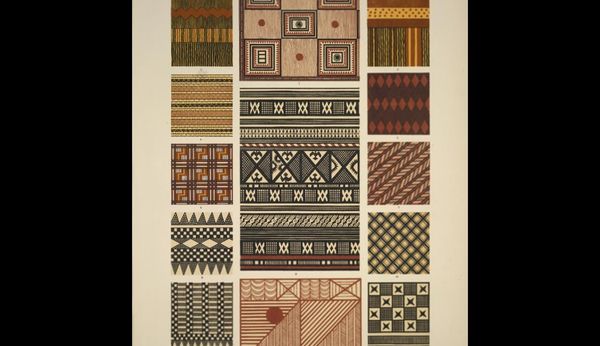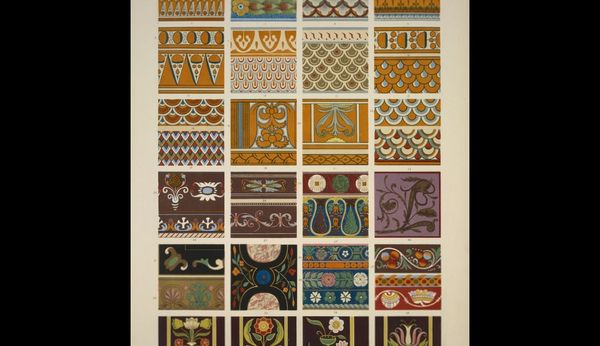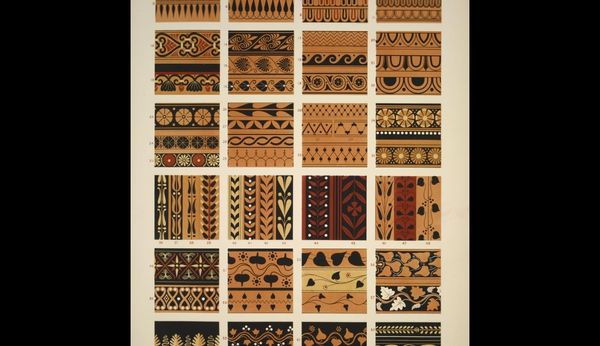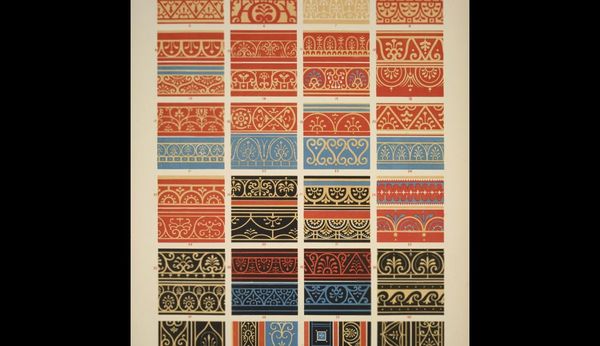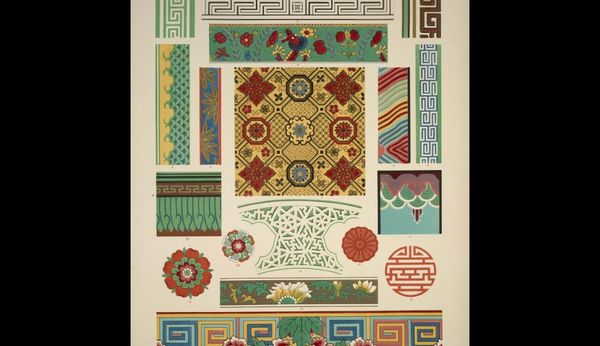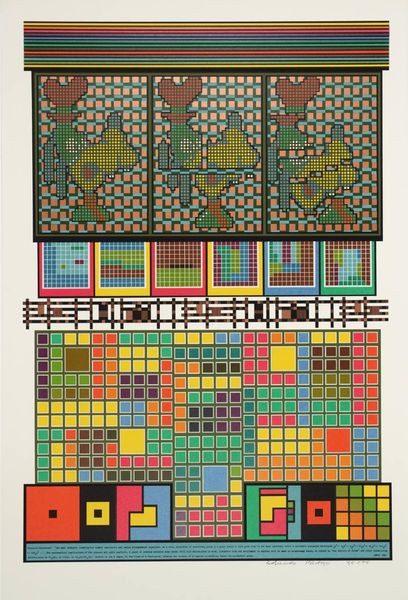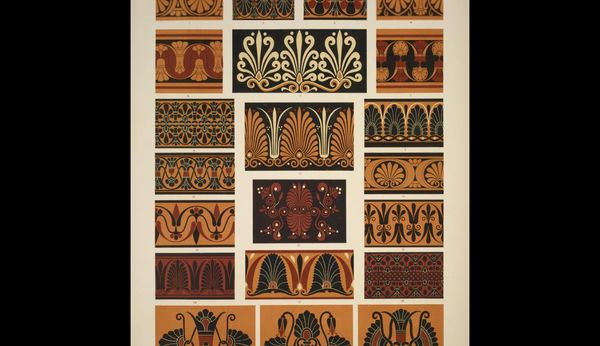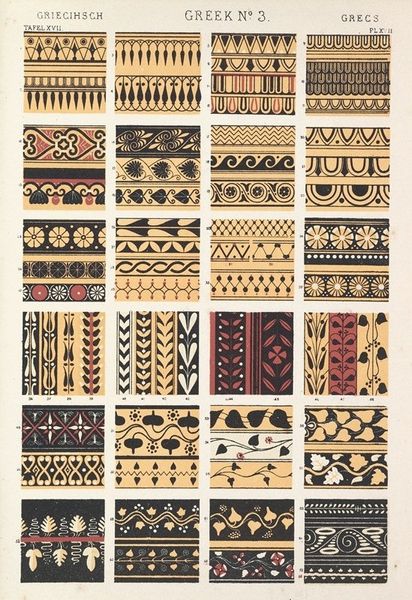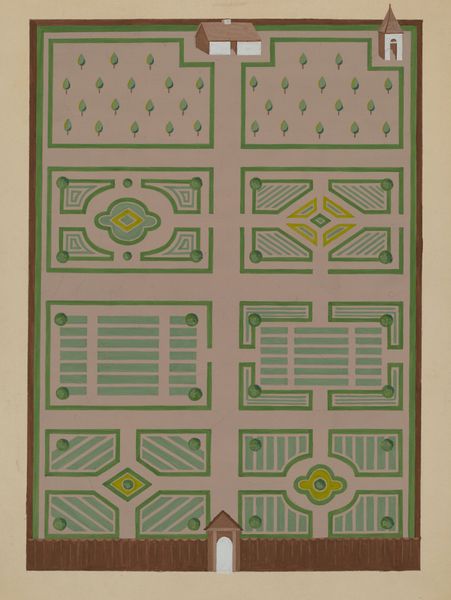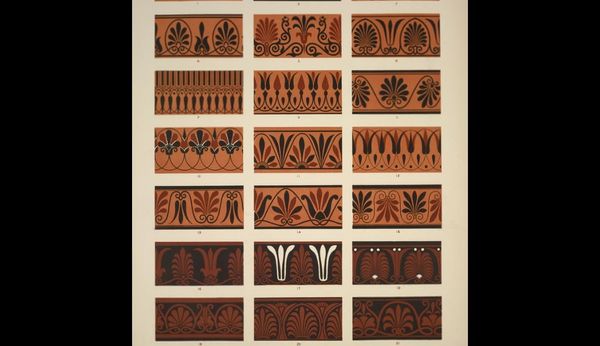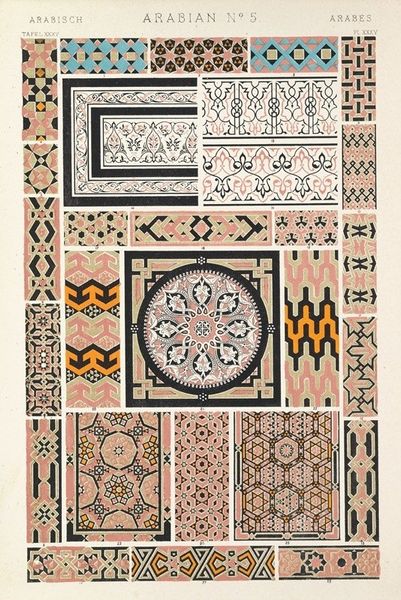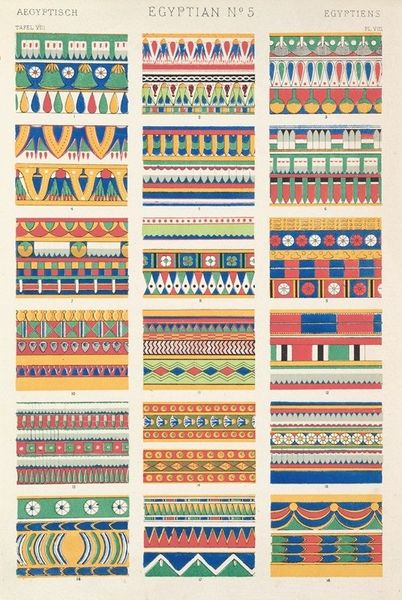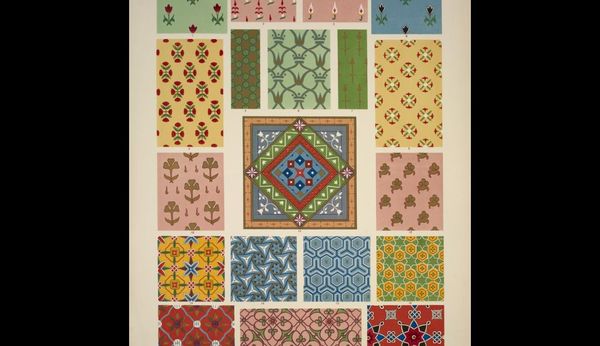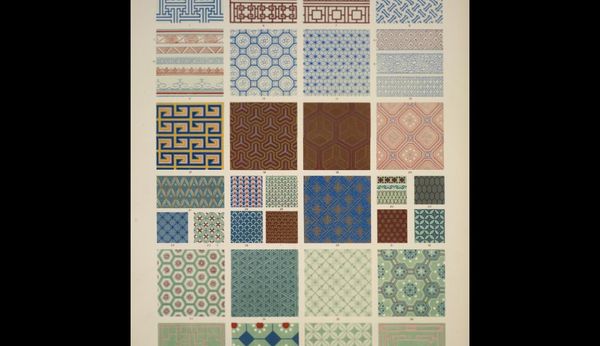
drawing, graphic-art, ornament
#
irregular pattern
#
drawing
#
graphic-art
#
natural stone pattern
#
ornament
#
man-made pattern
#
pattern
#
text
#
geometric pattern
#
brick
#
rectangle
#
brown and beige
#
geometric
#
ancient-mediterranean
#
column grid
#
pattern repetition
#
4 column grid system
#
decorative-art
#
layered pattern
Copyright: Public domain
Owen Jones created “Greek no. 1. The various forms of the Greek fret” using watercolor and paper. Jones, an influential 19th-century designer and architect, carefully rendered these geometric motifs, which are associated with ancient Greek ornamentation. The artwork is an exploration into the visual language of classical design through watercolor and drawing, a meticulous and labor-intensive task that has imbued the artwork with social and cultural significance. Jones’s approach reflects the Victorian-era fascination with historical styles and an interest in classifying and understanding design principles. It is one thing to study the architecture that uses the forms, and another to record them systematically. The act of studying and cataloging these patterns reflects a broader cultural project of the 19th century: understanding and codifying design for industrial production. By standardizing these forms, Jones enabled their use in industrial processes, from textiles to architecture, reflecting the era's merging of art, design, and industry. This highlights the importance of materials, making, and context in understanding the meaning and purpose behind the artwork, blurring the lines between fine art and craft.
Comments
No comments
Be the first to comment and join the conversation on the ultimate creative platform.
